In this section on spirituality, we have gathered together writings by and about great people of different faiths, who have made considerable contributions to the world’s treasure of spiritual traditions. You may or may not agree with their beliefs and opinions, but do take the time to read through what they’ve said in the past, and decide for yourselves what resonates with you and what you can safely ignore. I believe that different religions reflect beautiful ways of expressing the human being’s faith in God and each other. And the Holy Wife in Her infinite diversity would certainly embrace each tradition within Her gentle heart.
This is paragraph text. Double click here to edit and add your own text.
 Pope Francis
Pope Francis
From Wikipedia, the free encyclopedia
Pope Francis born Jorge Mario Bergoglio; 17 December 1936) is the head of the Catholic Church and sovereign of the Vatican City State. Francis is the first Jesuit pope, the first from the Americas, the first from the Southern Hemisphere, the first to visit and hold papal mass in the Arabian Peninsula, and the first pope from outside Europe since the Syrian Gregory III, Born in Buenos Aires, Argentina, Bergoglio was ordained a Catholic priest in 1969, and from 1973 to 1979 was Argentina's provincial superior of the Society of Jesus (Jesuits). He became the Archbishop of Buenos Aires in 1998 and was created a cardinal in 2001 by Pope John Paul II. He led the Argentine Church during the December 2001 riots in Argentina. The administrations of Néstor Kirchner and Cristina Fernández de Kirchner considered him a political rival. Following the resignation of Pope Benedict XVI on 28 February 2013, a papal conclave elected Bergoglio as his successor on 13 March. He chose Francis as his papal name in honor of Saint Francis of Assisi.
Throughout his public life, Pope Francis has been noted for his humility, emphasis on God's mercy, international visibility as Pope, concern for the poor and commitment to interfaith dialogue. He is credited with having a less formal approach to the papacy than his predecessors, for instance choosing to reside in the Domus Sanctae Marthae guesthouse rather than in the papal apartments of the Apostolic Palace used by previous popes. He maintains that the Church should be more open and welcoming. He does not support unbridled capitalism, Marxism, or Marxist versions of liberation theology. Francis maintains the traditional views of the Church regarding abortion, marriage, ordination of women, and clerical celibacy. He opposes consumerism and overdevelopment, and supports taking action on climate change, a focus of his papacy with the promulgation of Laudato si'. In international diplomacy, he helped to restore full diplomatic relations between the United States and Cuba and supported the cause of refugees during the European migrant crisis. Since 2016, Francis has faced increasingly open criticism, particularly from theological conservatives, on the question of admitting civilly divorced and remarried Catholics to Communion with the publication of Amoris laetitia, and on the question of the alleged cover-up of clergy sexual abuse.
This is paragraph text. Double click here to edit and add your own text.
Pope Francis to migrants: The Church suffers with you
March 30, 2019 CNA Daily News News Briefs
Immigrants are an important part of
the Church and she is aware of the ways
they have and are suffering, Pope Francis
said to a group of African migrants Saturday.
“You are not the marginalized; you are at the
center of the Church’s heart,” the pope said
March 30. “The Church is aware of the
sufferings that accompany your journey and
she suffers with you.” Francis is visiting
Morocco March 30-31, where he met with a
group of about 80 immigrants at the Caritas
center of the Archdiocese of Rabat.
Continue reading here: https://www.catholicworldreport.com/2019/03/30/pope-francis-to-migrants-the-church-suffers-with-you/
 Vatican City, Apr 2, 2019 / 07:38 am (CNA).- In his follow-up document to October’s youth synod, Pope Francis urged young people to approach holiness not only with the joy and boldness of youth, but with seriousness. Addressing adolescents and young adults, he said: “I hope that you will be serious enough about yourself to make an effort to grow spiritually.
Vatican City, Apr 2, 2019 / 07:38 am (CNA).- In his follow-up document to October’s youth synod, Pope Francis urged young people to approach holiness not only with the joy and boldness of youth, but with seriousness. Addressing adolescents and young adults, he said: “I hope that you will be serious enough about yourself to make an effort to grow spiritually.
https://oklahoman.com/article/feed/9815373/pope...
Continue reading here: https://oklahoman.com/article/feed/9815373/pope...
Pope Francis to young people: Holiness takes effort
Published: Tue, April 2, 2019 8:38 AM , The Oklahoman
10 Most Important Messages from Laudato Si
06/18/2015 01:33 pm ET Updated Jun 118, 2016
1. The spiritual perspective is now part
of the discussion on the environment
2. The poor are disproportionately
affected by climate change.
3. Less is more.
4. Catholic social teaching now includes
teaching on the environment
5. Discussions about ecology can be
grounded in the Bible and church tradition.
6. Everything is connected — including the economy.
7. Scientific research on the environment is to be praised and used.
8. Widespread indifference and selfishness worsen environmental problems.
9. Global dialogue and solidarity are needed.
10. A change of heart is required
Continue reading here: https://www.huffpost.com/entry/10-most-important-messages-from-laudato-si_
 1. FAMILY IS THE FOUNDATION OF THE SOCIETY.
1. FAMILY IS THE FOUNDATION OF THE SOCIETY.
2. THE MOST BEAUTIFUL THING GOD MADE: THE FAMILY.
3. GOD SENT HIS SON INTO THE WORLD IN A FAMILY WHICH HAD ITS HEARTS OPEN TO LOVE.
4. GOD WANTS FAMILIES WHERE MEMBERS LOVE EACH OTHER AND EDUCATE THEIR CHILDREN IN GOODNESS.
5. DIFFICULTIES IN THE FAMILY EXIST BUT THEY ARE OVERCOME WITH LOVE.
6. PAY ATTENTION TO CHILDREN AND GRANDPARENTS.
7. HOLINESS AND LOVE ARE MANIFESTED
8. THE FAMILY, THE HOME IS WHERE FAITH IS LEARNED AND GROWS.IN THE LITTLE GESTURES OF EACH DAY.
9. JESUS ENCOURAGES THES LITTLE LOVING GESTURES AS SIGNS OF HIS PRESENCE IN THE WORLD.
10. THE IMPORTANCE OF PARENTS BEING GOOD MODELS OF VIRTUE.
Continue reading here: https://catholicsstrivingforholiness.com/2015/09/29/pope-francis-on-the-family-top-10...
This is paragraph text. Double click here to edit and add your own text.
(Catholicism, Buddhism, Judaism, Protestantism, Islam, Hinduism)
Wyatt Massey March 10, 2017, The Jesuit Review
T1.Visit to Lampedusa
2 “Laudato Si"
3. “Amoris Laetitia” and the Synod on the Family
4. “Who am I to judge?”
5. Year of Mercy
6. Women deacons
7. Trip to the United States and Cuba
8. Interview with Antonio Spadaro, S.J.
9. Meeting with Ecumenical Patriarch Bartholomew
10. Embracing the sick and disabled
Continue reading here: https://www.americamagazine.org/faith/2017/03/10
His Holiness the 14th Dalai Lama, Tenzin Gyatso, describes himself as a simple Buddhist monk. He is the spiritual leader of Tibet. He was born on 6 July 1935, to a farming family, in a small hamlet located in Taktser, Amdo, northeastern Tibet. At the age of two, the child, then named Lhamo Dhondup, was recognized as the reincarnation of the previous 13th Dalai Lama, Thubten Gyatso.
The Dalai Lamas are believed to be manifestations of Avalokiteshvara or Chenrezig, the Bodhisattva of Compassion and the patron saint of Tibet. Bodhisattvas are realized beings inspired by a wish to attain Buddhahood for the benefit of all sentient beings, who have vowed to be reborn in the world to help humanity.
His Holiness began his monastic education at the age of six. The curriculum, derived from the Nalanda tradition, consisted of five major and five minor subjects. The major subjects included logic, fine arts, Sanskrit grammar, and medicine, but the greatest emphasis was given to Buddhist philosophy. At 23, His Holiness sat for his final examination in Lhasa’s Jokhang Temple, during the annual Great Prayer Festival (Monlam Chenmo) in 1959. He passed with honors and was awarded the Geshe Lharampa degree, equivalent to the highest doctorate in Buddhist philosophy.
In 1950, after China's invasion of Tibet, His Holiness was called upon to assume full political power. In 1954, he went to Beijing and met with Mao Zedong and other Chinese leaders, including Deng Xiaoping and Chou Enlai. Finally, in 1959, following the brutal suppression of the Tibetan national uprising in Lhasa by Chinese troops, His Holiness was forced to escape into exile. Since then he has been living in Dharamsala, northern India.
In 1963, His Holiness presented a draft democratic constitution for Tibet, followed by a number of reforms to democratize the Tibetan administration. The new democratic constitution was named "The Charter of Tibetans in Exile." The charter enshrines freedom of speech, belief, assembly and movement. It also provides detailed guidelines on the functioning of the Tibetan Administration with respect to Tibetans living in exile. In 1989 he was awarded the Nobel Peace Prize for his non-violent struggle for the liberation of Tibet. He has consistently advocated policies of non-violence, even in the face of extreme aggression. He also became the first Nobel Laureate to be recognized for his concern for global environmental problems.
On 14 March 2011 His Holiness wrote to the Assembly of Tibetan People's Deputies (Tibetan Parliament-in-exile) requesting it to relieve him of his temporal authority, since according to the Charter of the Tibetans in Exile, he was technically still the head of state. He announced that he was ending the custom by which the Dalai Lamas had wielded spiritual and political authority in Tibet. He intended, he made clear, to resume the status of the first four Dalai Lamas in concerning himself only with spiritual affairs.
Compassion as the Source of Happiness
The Purpose of Life Is to Strive for Happiness
We are here; we exist and we have the right to exist. Even non-sentient beings like flowers have the right to exist. If negative force is exerted against them, then, on a chemical level, flowers repair themselves to survive. But more than that, we human beings including insects, even amoebas, the smallest beings are considered sentient beings. And as sentient beings, we have even more mechanisms to help us survive.
Continue reading here: https://www.dalailama.com/messages/compassion-and-human-values/compassion-as-the-source-of-happiness
CC
 The Dalai Lama on Why Leaders Should Be Mindful, Selfless, and Compassionate
The Dalai Lama on Why Leaders Should Be Mindful, Selfless, and Compassionate
Over the past nearly 60 years, I have engaged with many leaders of governments, companies, and other organizations, and I have observed how our societies have developed and changed. I am happy to share some of my observations in case others may benefit from what I have learned.
Leaders, whatever field they work in, have a strong impact on people’s lives and on how the world develops. We should remember that we are visitors on this planet. We are here for 90 or 100 years at the most. During this time, we should work to leave the world a better place. What might a better world look like? I believe the answer is straightforward: A better world is one where people are happier. Why? Because all human beings want to be happy, and no one wants to suffer. Our desire for happiness is something we all have in common.
Continue reading here: https://www.dalailama.com/messages/compassion-and...
At a fundamental level, as human beings, we are all the same; each one of us aspires to happiness and each one of us does not wish to suffer. This is why, whenever I have the opportunity, I try to draw people's attention to what as members of the human family we have in common and the deeply interconnected nature of our existence and welfare.
Today, there is increasing recognition, as well as a growing body of scientific evidence, that confirms the close connection between our own states of mind and our happiness. On the one hand, many of us live in societies that are very developed materially, yet among us are many people who are not very happy. Just underneath the beautiful surface of affluence there is a kind of mental unrest, leading to frustration, unnecessary quarrels, reliance on drugs or alcohol, and in the worst case, suicide. There is no guarantee that wealth alone can give you the joy or fulfilment that you seek. The same can be said of your friends too. When you are in an intense state of anger or hatred, even a very close friend appears to you as somehow frosty, or cold, distant, and annoying.
Continue reading here: https://www.dalailama.com/messages/compassion-and...
The Dalai Lama speaking about peace and inner happiness to a crowd of 60,000 in Central Park, New York City, USA on September 21, 2003. (Photo by Manuel Bauer
 The Dalai Lama: Why I’m hopeful about the world’s future
The Dalai Lama: Why I’m hopeful about the world’s future
The Washington Post, Opinions, 13 June 2016
By The Dalai Lama
Almost six decades have passed since I left my homeland, Tibet, and became a refugee. Thanks to the kindness of the government and people of India, we Tibetans found a second home where we could live in dignity and freedom, able to keep our language, culture and Buddhist traditions alive. My generation has witnessed so much violence — some historians estimate that more than 200 million people were killed in conflicts in the 20th century.
Today, there is no end in sight to the horrific violence in the Middle East, which in the case of Syria has led to the greatest refugee crisis in a generation. Appalling terrorist attacks — as we were sadly reminded this weekend — have created deep-seated fear. While it would be easy to feel a sense of hopelessness and despair, it is all the more necessary in the early years of the 21st century to be realistic and optimistic.
Continue reading here: https://www.washingtonpost.com/opinions/the-dalai-lama-why-im-hopeful-about-the-worlds-future/2016/06/13/e380973a-30a2-11e6-8ff7-7b6c1998b7a0_story.html
own text.
His Holiness the Dalai Lama with young children during the inauguration of the Tong Len hostile in Dharamsala, HP, India on November 19, 2011. (Photo by Tenzin Choejor/OHHDL)
There are many different religions and cultures in the world and each has developed to suit its own people. Because of that, I always recommend that it’s best to keep the religion you were born into. In the West, most people are Christians, although there are also some Jews and some Muslims. For them, or for anyone, to change religions is not easy and sometimes it just creates confusion.
Continue reading here: https://www.dalailama.com/.../establishing-harmony-within-religious-diversity
His Holiness the Dalai Lama takes a moment for reflection during his visit to St Stephen's Cathedral in Vienna, Austria on May 27, 2012. (Photo by Tenzin Choejor/OHHDL)
Rabbi Harold Kushner was named Rabbi Laureate of Temple Israel in Natick, MA, after serving that congregation for twenty-four years. He is best known as the author of When Bad Things Happen to Good People, an international best seller first published in 1981, which has been translated into fourteen languages. One critic has called it “the most important book of popular theology ever written in America.” Rabbi Kushner also has written six other New York Times best sellers.
In 1995, Rabbi Kushner was honored by the Christophers, a Roman Catholic organization, as one of fifty people who have made the world a better place in the last fifty years. He has twice been nominated for the Templeton Prize, the equivalent of the Nobel Prize for Religion.
In 1999, the national organization Religion in American Life honored him as their clergyman of the year. In 2008, he was the first recipient of the Lifetime Achievement Award for contributions to the world of Jewish books, presented by the Jewish Book Council.
Source: Hillel at the University of Massachusetts Amherst website, “An Evening with Rabbi Harold Kushner”
A PRAYER FOR THE WORLD
Let the rain come and wash away
the ancient grudges, the bitter hatreds
held and nurtured over generations.
Let the rain wash away the memory
of the hurt, the neglect.
Then let the sun come out and
fill the sky with rainbows.
Let the warmth of the sun heal us
wherever we are broken.
Let it burn away the fog so that
we can see each other clearly.
So that we can see beyond labels,
beyond accents, gender or skin color.
Let the warmth and brightness
of the sun melt our selfishness.
So that we can share the joys and
feel the sorrows of our neighbors.
And let the light of the sun
be so strong that we will see all
people as our neighbors.
Let the earth, nourished by rain,
bring forth flowers
to surround us with beauty.
And let the mountains teach our hearts
to reach upward to heaven.
Amen.
Harold S. Kushner Quotes
God does not cause our misfortunes. Some are caused by bad luck, some are caused by bad people, and some are simply an inevitable consequence of our being human and being mortal. living in a world of inflexible natural laws. The painful things that happen to us are not punishments for our misbehavior, nor are they in any way part of some grand design on God's part. Because the tragedy is not God's will, we need not feel hurt or betrayed by God when tragedy strikes. We can turn to Him for help in overcoming it, precisely because we can tell ourselves that God is as outraged by it as we are.
Our souls are not hungry for fame, comfort, wealth, or power. Our souls are hungry for meaning, for the sense that we have figured out how to live so that our lives matter.
People who pray for miracles usually don't get
miracles. But people who pray for courage, for
strength to bear the unbearable, for the grace to
remember what they have left instead of what they
have lost, very often find their prayers answered.
Their prayers help them tap hidden reserves of faith
and courage that were not available to them before.
The purpose in life is not to win. The purpose in life is to grow and to share. "When you come to look back on all that you have done in life, you will get more satisfaction from the pleasure you have brought into other people's lives than you will from the times that you outdid and defeated them.
Is there an answer to the question of why bad things happen to good people?...The response would be…to forgive the world for not being perfect, to forgive God for not making a better world, to reach out to the people around us, and to go on living despite it all…no longer asking why something happened, but asking how we will respond, what we intend to do now that it has happened.
Do things for people not because of who they are or what they do in return, but because of who you are.
At some of the darkest moments in my life, some
people I thought of as friends deserted me-some
because they cared about me and it hurt them to
see me in pain; others because I reminded them of
their own vulnerability, and that was more than
they could handle. But real friends overcame their
discomfort and came to sit with me. If they had not
words to make me feel better, they sat in silence
(much better than saying, "You'll get over it," or "
It's not so bad; others have it worse") and I loved
them for it.
If you concentrate on finding whatever is good in every situation, you will discover that your life will suddenly be filled with gratitude, a feeling that nurtures the soul.
God is the light shining in the midst of darkness, not to deny that there is darkness in the world but to reassure us that we do not have to be afraid of the darkness because darkness will always yield to light. As theologian David Griffin puts in, God is all-powerful, His power enables people to deal with events beyond their control and He gives us the strength to do those things because He is with us.
When you are kind to others, it not only changes you, it changes the world.
Integrity means being whole, unbroken, undivided. It describes a person who has united the different parts of his or her personality, so there is no longer a split in the soul ... For the person of integrity, life may not be easy but it is simple: Figure out what is right and do it. All other considerations come in second.
We can endure much more than we think we can; all human experience testifies to that. All we need to do is learn not to be afraid of pain. Grit your teeth and let it hurt. Don't deny it, don't be overwhelmed by it. It will not last forever. One day, the pain will be gone and you will still be there.
But at the end, if we are brave enough to love, if we are strong enough to forgive, if we are generous enough to rejoice in another's happiness, and if we are wise enough to know that there is enough love to go around for us all, then we can achieve a fulfillment that no other living creature will ever know, we can reenter paradise.
When your life is filled with the desire to see the holiness in everyday life, something magical happens: Ordinary life becomes extraordinary, and the very process of life begins to nourish your soul.
The soul is not a physical entity, but instead refers to everything about us that is not physical - our values, memories, identity, sense of humor. Since the soul represents the parts of the human being that are not physical, it cannot get sick, it cannot die, it cannot disappear. In short, the soul is immortal.
We do ourselves and others a disservice when we
make old age something to be feared. Life is not a
resource to be used up, so that the older we get,
the less life we have left. Life is the accumulation
of wisdom, love and experience of people
encountered and obstacles overcome. The longer
we live, the more life we possess.
You don't become happy by pursuing happiness. You become happy by living a life that means something.
In all my years of counselling those near death, I've yet to hear anyone say they wish they had spent more time at the office
There is no right way to do a wrong thing.
What cannot be achieved in one lifetime will happen when one lifetime is joined to another.
I said in an interview at the time that God's job is not to make sick people healthy. That's the doctors' job. God's job is to make sick people brave.
God is like a mirror. The mirror never changes, but everybody who looks at it sees something different.
It is tempting at one level to believe that bad things happen to people (especially other people) because God is a righteous judge who gives them exactly what they deserve. By believing that we keep the world orderly and understandable.... But [this belief] has a number of serious limitations.... It teaches people to blame themselves. It creates guilt when there is no basis for guilt. And most disturbing of all, it does not even fit the facts.
The soul is not a physical entity, but instead refers to everything about us that is not physical - our values, memories, identity, sense of humor. Since the soul represents the parts of the human being that are not physical, it cannot get sick, it cannot die, it cannot disappear. In short, the soul is immortal.
This biography was prepared by the staff of the Billy Graham Center Archives at Wheaton College and is intended to provide a basic context for understanding the documents in BGEA and BGEA-related collections.
William Franklin Graham, Jr., known as Billy Graham to most of the world, was born on November 7, 1918, near Charlotte, North Carolina, to William Franklin and Morrow Coffey Graham. Billy was the first of four children, followed by Catherine, Melvin, and Jean. In 1919 he was baptized by sprinkling at Chalmers Memorial Church. William Franklin, Sr., was a successful farmer and businessman and Billy had a normal childhood. Both parents were Christians and the family regularly attended the Associate Reformed Presbyterian Church. In 1934, evangelist Mordecai Fowler Ham began preaching at a series of revival
meetings in Charlotte. He stirred up considerable
controversy with his charges of moral laxity at the
local high school. Billy attended the meetings, partly
attracted by the controversy. Graham was led, while
listening to Ham's preaching, which heightened Graham's
conviction of his own sin, to commit his life to Christ.
Continue reading here: https://www2.wheaton.edu/bgc/archives/bio.html
 At Wheaton Billy met fellow student Ruth Bell, his future wife. She was the daughter of the Southern Presbyterian missionary and surgeon, L. Nelson Bell. The Bells had been stationed in China since 1916. It was in that country and in Korea that Ruth spent her childhood. The couple was married on August 13, 1943, after graduation. Graham's first (and last) pastorate after graduation was at the Baptist church in the Chicago suburb of Western Springs, which was soon thereafter named the Village Church. He served a little over a year. During his time in Western Springs, he took over from another Chicago-area pastor, Torrey Johnson, the religious radio program Songs in the Night. Graham preached on the program every Sunday evening and persuaded George Beverly Shea, a popular Christian soloist, to join him.
At Wheaton Billy met fellow student Ruth Bell, his future wife. She was the daughter of the Southern Presbyterian missionary and surgeon, L. Nelson Bell. The Bells had been stationed in China since 1916. It was in that country and in Korea that Ruth spent her childhood. The couple was married on August 13, 1943, after graduation. Graham's first (and last) pastorate after graduation was at the Baptist church in the Chicago suburb of Western Springs, which was soon thereafter named the Village Church. He served a little over a year. During his time in Western Springs, he took over from another Chicago-area pastor, Torrey Johnson, the religious radio program Songs in the Night. Graham preached on the program every Sunday evening and persuaded George Beverly Shea, a popular Christian soloist, to join him.
This is paragraph text. Double click here to edit and add your own text.
Christ's Answer to the World
by: Billy Graham
transcript of the sermon which Billy Graham preached at the Charlotte Crusade. September 21 - 1958
Now, today I will turn to the 17th chapter of the book of Acts,
beginning at verse 30. Beginning tomorrow evening I am
going to ask how many have brought their Bibles. I want
everybody to bring a Bible. Now, I'm not a Bibliographist [sic].
I am not asking you to worship with the Bible. I don't use the
Bible as a fetish. But I believe that the Bible is God's inspired Word, and in this book we find God's message for us today. I want you to get in the habit of carrying your Bible, reading your Bible, searching the Scriptures with me.
I am not here night after night to put on a show. We are not here to put on an entertainment. We are here to tell you what the Bible has to say. What does the Bible have to say about your problems? What does the Bible have to say about the problems we're facing in the world in which we live today? Night after night, I'm going to ask you to bring your Bibles.
Now you may have just a little Testament; you might not have a Bible at all. Go downtown and get a Bible. If you don't have the money to get a Bible, Beverly Shea will lend you the money. But get a Bible. Bring your Bibles to the services every evening.
In New York, a lot of people brought great big family Bibles that they could hardly carry. Whatever kind of Bible you have, bring it. We're here to study the Bible and see what the Bible has to say. Everybody has a Bible, but very few people know what the Bible says. We don't know what the Bible says; we don't read its pages. The Bible is an uninteresting closed book. I want us to open the Bible together and see what the message of this book is for the day in which we live. The 17th chapter of the book of Acts:
"But now God commandeth all men everywhere to repent: because he hath appointed a day, in . . . which he will judge the world in righteousness by that man whom he hath ordained; whereof he hath given assurance unto all men, in that he hath raised him from the dead. And when they heard of the resurrection of the dead, some mocked: and others said, we will hear thee again of this matter. So Paul departed from among them. Howbeit certain men clave unto him and believed" [verses 30-34].
Here we have a picture of the apostle Paul. He is going throughout the Mediterranean world proclaiming the good news to people in frustration, fear, and sin. And the apostle Paul is preaching Christ to the people, and now he comes to Athens.
I Athens was the cultural and intellectual center
of the ancient world. It was the city of Plato, Aristotle,
and Epicurus. If you take all the universities of
America and roll them into one, you have what Athens
was to the intellectual world of that day. As in this day,
in the midst of intellectual achievements and scientific
advances, there existed both confusion and frustration.
Greece at that time was under the iron heel of Rome,
and the whole world was longing for freedom. They
were searching for an answer. family Bibles that they could hardly carry. Whatever kind of Bible you have, bring it. We're here to study the Bible and see what the Bible has to say. Everybody has a Bible, but very few people know what the Bible says. We don't know what the Bible says; we don't read its pages. The Bible is an uninteresting closed book. I want us to open the Bible together and see what the message of this book is for the day in which we live. The 17th chapter of the book of Acts:
"But now God commandeth all men everywhere to repent: because he hath appointed a day, in . . . which he will judge the world in righteousness by that man whom he hath ordained; whereof he hath given assurance unto all men, in that he hath raised him from the dead. And when they heard of the resurrection of the dead, some mocked: and others said, we will hear thee again of this matter. So Paul departed from among them. Howbeit certain men clave unto him and believed" [verses 30-34].
Here we have a picture of the apostle Paul. He is going throughout the Mediterranean world proclaiming the good news to people in frustration, fear, and sin. And the apostle Paul is preaching Christ to the people, and now he comes to Athens.
Athens was the cultural and intellectual center of the ancient world. It was the city of Plato, Aristotle, and Epicurus. If you take all the universities of America and roll them into one, you have what Athens was to the intellectual world of that day. As in this day, in the midst of intellectual achievements and scientific advances, there existed both confusion and frustration. Greece at that time was under the iron heel of Rome, and the whole world was longing for freedom. They were searching for an answer.
And things haven't changed very much in two thousand years. The world is still searching for an answer. Much of the world is still in slavery. Today Charlotte is considered in the Carolinas one of our intellectual cities. It is considered a city of church-going people. It is considered a religious city. This city is considered an educational center.
The Scriptures say that Paul became spurred on by what he saw. I think the world of our day is also crying for help, as the people in that day were crying for help. The philosophical world is saying, "Come and help us" to the church.
Jean Sartre, who is one of the leaders in modern existentialism, has said, "If you don't believe in God, that's all right. I don't believe in God. But," he said, "believe in something, because man is so philosophically constituted that he needs something to believe in."
So the world of philosophy today for the first time in centuries is crying out to the church, "Help us, give us an answer, we are confused."
The economic world is crying out.
Look at India. In India today there are nearly
400 million people – in 1957
(1100 million people – 2007- ed) ,
increasing at the rate of 5 million a year.
Just the problem of population increase
alone is bringing about economic
pressures that could bring about revolution
and trouble in the world to come. Japan
has a population of 93 million living on a
land area the size of the state of California, increasing at the rate of 1 million a year. China is increasing at the rate of 9 million a year. In twenty-five years, one out of every five babies born in the world will be a Chinese.
The scientific world is crying out, "Help us." Life magazine said not long ago there is a crisis in science. The faster the universe expands, the greater are the areas of ignorance it seems to open. Science has created Frankenstein monsters and doubts its moral ability to control them. We have hydrogen bombs that are ready to be unleashed upon the world.
We are seeing a hardening American attitude. We are seeing verbal blasts back and forth between Russia and America. How long it will only be in the talking phase we do not know, but we do know that our scientists and military leaders are warning that we could be in a nuclear war at any time that could wipe out 60 million Americans in the first few hours.
The political world is crying for help. Communism and democracy, the East and the West, are at each other's throats with two diametrically opposed political ideologies. And the whole political world is saying, "Help us."
A European leader said a few weeks ago, "If the devil could offer a panacea, I would follow the devil." The world is becoming desperate, the world wants an answer, and the world wants an answer quickly.
Thank God that Martin Luther King, who was stabbed last night in New York, was not stabbed by a white person. If he had been, we might have seen a racial war in New York with blood flowing down the street.
Our problems and our tensions are so complicated. No one has the answer. What is the answer? Many people are crying for answers to these problems. The moral problem, mental breakdowns, and other problems arise.
A new word has entered our vocabulary called "escapism." We Americans are trying to escape from reality. We are taking dope, drink, tranquilizing pills, entertainment, and intent upon soul-forgetfulness. People flee from themselves to become lost in the clouds.
And the heroes of modern pictures and films are spiritually homeless. Look at the television programs. How many deal with psychological cases? Every time you look at Gunsmoke [a television Western of the time] it sets a psychological problem dressed in western clothes. And I read the other day that the psychiatrists are now going to each other for help.
Edward [Edwin] Arlington Robinson says, "I cannot find my way. There is no star." Winston Churchill threw up his hands some time ago and said, "Our problems are beyond us." Paul looked at the confusion of his day in Athens. And the Bible says that Paul was disturbed by what he saw and felt. Ladies and gentlemen, on this warm September afternoon in 1958 I am disturbed by what I see and what I feel. We stand on the brink of catastrophe. Mr. Nehru, speaking to the Indian Parliament, recently said, "We stand on the brink of hell."
Our leaders are warning us, but we have
become dead. Our minds are blinded, our wills
are paralyzed, and our consciences dulled. We
are so taken up with our money-making, so taken
up with the amusements and places and comforts
of modern American life, that we don't realize that
the forces of evil are closing in round about us.
Unless we can turn to God and have His help, we
are done for as a nation and as a people.
I do not think that the Charlotte crusade ought to be "another crusade." I do not think it ought to be a crusade kept in the history of the crusades of our team. I think it ought to be something different. I think it ought to be the beginning of a revival throughout the South that can sweep the nation. I think it ought to be something that will set an example to the world and say to the world, "We have an answer. We can solve our problems at the foot of the cross as a community, and we have found an answer to our individual needs in Jesus Christ."
While Paul was disturbed by all this, some of the philosophers came and said, "Paul, we've been listening to you talk. We'd like to hear more of it. How about going up to Mars Hill and giving a lecture?" [See Acts 17:18,19.] And so Paul did. He went up to Mars Hill, and there he preached his famous sermon on Mars Hill. Some people have said that this sermon was a great failure in Paul's life. Some people said that Paul, in preaching this sermon, did not get any results, never founded a great church in Athens, and he never had any persecution and never had any opposition in Athens.
One of the things that disturbs me here is the devil is too quiet. I hope he'll get stirred up somewhere. Because when he is quiet I know he is getting ready to kick us from behind somewhere, while we are not looking.
Continue reading here: https://robertcliftonrobinson.com/2018/02/27/christs-answer-to-the-world-by-billy-graham/
Core Islamic Beliefs: Six Articles of Faith
Source: www.islamreligion.com
More than a billion Muslims share a common set of fundamental beliefs that are described as "Articles of Faith." These articles of faith form the foundation of Islamic belief system.
1. Belief in One God: The most important teaching of Islam is that only God is to be served and worshipped. Also, the biggest sin in Islam is to worship other beings with God. In fact, Muslims believe that it is the only sin that God does not forgive if a person dies before repenting from it.
2. Belief in Angels: God created unseen beings called angels who work tirelessly to administer His kingdom in full obedience. The angels surround us at all times, each has a duty; some record our words and deeds.
3. Belief in Prophets of God: Muslims believe that God communicates His guidance through human prophets sent to every nation. These prophets start with Adam and include Noah, Abraham, Moses, Jesus and Muhammad, peace be upon them. The main message of all the prophets has always been that there is only One true God and He alone is worthy of being supplicated to and worshipped.
4. Belief in Revealed Books of God: Muslims believe that God revealed His wisdom and instructions through ‘books’ to some of the prophets like the Psalms, Torah, and the Gospel. Over time, however, the original teachings of these books got distorted or lost. Muslims believe the Quran is God’s final revelation revealed to Prophet Muhammad and has been fully preserved.
5. Belief in Day of Judgment: The life of this world and all that is in it will come to an end on an appointed day. At that time, every person will be raised from the dead. God will judge each person individually, according to his faith and his good and bad actions. God will show mercy and fairness in judgment. According to Islamic teachings, those who believe in God and perform good deeds will be eternally rewarded in Heaven. Those who reject faith in God will be eternally punished in the fire of Hell.
6. Belief in Destiny and Divine Decree: Muslims believe that since God is the Sustainer of all life, nothing happens except by His Will and with His full knowledge. This belief does not contradict the idea of free will. God does not force us, our choices are known to God beforehand because His knowledge is complete. This recognition helps the believer through difficulties and hardships.
Core Religious Practice of Islam: The Five "Pillars" of Islam
In Islam, worship is part of daily life and is not limited to mere rituals. The formal acts of worship are known as the five "pillars" of Islam. The five pillars of Islam are the declaration of faith, prayer, fasting, charity, and pilgrimage.
1. Declaration of Faith: The "Declaration of Faith" is the statement, "La ilaha illa Allah wa Muhammad Rasul-ullah", meaning "There is no deity worthy of being worship except God (Allah), and Muhammad is the Messenger (Prophet) of God". The Declaration of Faith is more than just a statement; it must be shown with one's actions. To convert to the faith of Islam, a person has to say this statement.
2. Daily Prayer: Prayer is a method by which a Muslim connects to God and gathers spiritual strength and peace of mind. Muslims perform five formal prayers a day.
3. Zakah: A type of charity. Muslims recognize that all wealth is a blessing from God, and certain responsibilities are required in return. In Islam, it is the duty of the wealthy to help the poor and needy.
4. Fast of Ramadan: Once each year, Muslims are commanded to fast for an entire month from dawn to sunset. The period of intense spiritual devotion is known as the fast of Ramadan in which no food, drink and sex is allowed during the fast. After sunset one can enjoy these things. During this month Muslims practice self-control and focus on prayers and devotion. During the fast, Muslims learn to sympathize with those in the world who have little to eat.
5. The Hajj Pilgrimage to Mecca: Every Muslim strives to make once-in-a-lifetime pilgrimage to the sacred sites in Mecca, in present-day Saudi Arabia. It is the most intense spiritual experience for a Muslim. Typically, 2-3 million perform hajj every year.
 The Quran, the last revealed word of God, is the primary source of every Muslim’s faith and practice. It deals with all the subjects which concern human beings: wisdom, doctrine, worship, transactions, law, etc., but its basic theme is the relationship between God and His creatures. At the same time, it provides guidelines and detailed teachings for a just society, proper human conduct, and an equitable economic system.
The Quran, the last revealed word of God, is the primary source of every Muslim’s faith and practice. It deals with all the subjects which concern human beings: wisdom, doctrine, worship, transactions, law, etc., but its basic theme is the relationship between God and His creatures. At the same time, it provides guidelines and detailed teachings for a just society, proper human conduct, and an equitable economic system.
Scholars consider Surah al-Fatihah, the first chapter of the Quran, to be the core of the Quran. It is recited in every formal prayer in the Arabic language. The translation follows:
"I begin with the name of God, the Most Beneficent, the Most Merciful. All praise and thanks are for God, the Lord of the worlds. The Most Beneficent, the Most Merciful. Sovereign of the Day of Recompense. You alone we worship and You alone we ask for help. Guide us to the Straight Path (of Islam), the path of those You have blessed, not the path of those who have incurred Your wrath nor of those who have gone astray."
Classical scholars of Islam have condensed the teachings of Prophet Muhammad into a few statements. These comprehensive statements touch every aspect of our lives. Some of them are:
1) Actions are judged by the intention behind them.
2) God is Pure and does not accept anything unless it is pure and God has commanded the faithful with what He commanded the prophets.
3) Part of a person’s good observance of Islam is to leave aside what does not concern him.
4) A person cannot be a complete believer unless he loves for his brother what he loves for himself.
5) One should not harm himself or others.
6) Don’t let your focus in this life be to amass worldly gain and God will love you. Don’t be concerned with what people have, and they will love you.
The core of Islamic Law is preservation of:
1) Religion
2) Life
3) Family
4) Mind
5) Wealth
6) Some contemporary scholars suggest either justice or liberty to be the sixth category.
In the vision of Islam, they are known as "essentials" because they are considered essential to human welfare.
In conclusion, if someone were to ask, what is the core of Islam in the fewest possible words, the answer would be, "it is within the word Islam itself: to serve, worship, and lovingly submit to God."
TBeautiful Quran Quotes
9-piece notecard set
Call upon me I will respond to you
And Allah would not punish them as they seek forgiveness
So remember me I will remember youxt.
 Deepak Chopra, M.D., F.A.C.P., is the co-founder of the Chopra Center for Wellbeing, the founder of the Chopra Foundation, and a world-renowned pioneer in integrative medicine and personal transformation. He is board certified in internal medicine, endocrinology, and metabolism. He is a Fellow of the American College of Physicians, a member of the American Association of Clinical Endocrinologists, and a clinical professor in the Family Medicine and Public Health Department at the University of California, San Diego.
Deepak Chopra, M.D., F.A.C.P., is the co-founder of the Chopra Center for Wellbeing, the founder of the Chopra Foundation, and a world-renowned pioneer in integrative medicine and personal transformation. He is board certified in internal medicine, endocrinology, and metabolism. He is a Fellow of the American College of Physicians, a member of the American Association of Clinical Endocrinologists, and a clinical professor in the Family Medicine and Public Health Department at the University of California, San Diego.
He is the author of more than 85 books translated into over 43 languages, including numerous New York Times bestsellers. His recent books include You Are the Universe, co-authored with Menas Kafatos, Ph.D.; Quantum Healing (Revised and Updated): Exploring the Frontiers of Mind/Body Medicine; and The Healing Self, co-authored with Rudolph Tanzi, Ph.D. Learn more at www.deepakchopra.com.
"Deepak Chopra believes that Vedanta,
Hinduism's rich body of literature, provides
the most satisfying answers. "I find that
Vedanta, of all great traditions, does have a
framework that I can come to terms with
as a person who thinks that science is the
most legitimate way of understanding the
secrets of nature." In this new book, Chopra
delves deeply into Vedanta and combines it
with his knowledge of the sciences to
provide a map for spiritual evolution.
Chopra, who was born a Hindu, makes a distinction between Vedanta and Hinduism. Would he juxtapose the two words? Says Chopra, "Most people would easily substitute one word for the other--my bias is that when we start saying Hinduism, I, at least, start thinking of rituals and certain ideological framework and the Manu Smriti which is a book of rules and regulations. I regard Hinduism as a religion. And I regard Vedanta as the source which inspired Hinduism, and when I say Vedanta, I mean particularly that body of literature which we call the Upanishads." In a 1997 interview with Rashmi Uday Singh published in India, he said he is "not at all religious."Chopra particularly emphasizes the Bhagavad Gita, which he calls one of the gemstones of the Vedantic tradition. "So, obviously there is a great overlap, but the reason why I like to use the term Vedanta is that it refers immediately to one particular body of Hindu literature, whereas Hindu literature includes other bodies of literature--all of which have a wealth to offer."
(Amber-Allen Publishing, San Rafael, California, 2006)
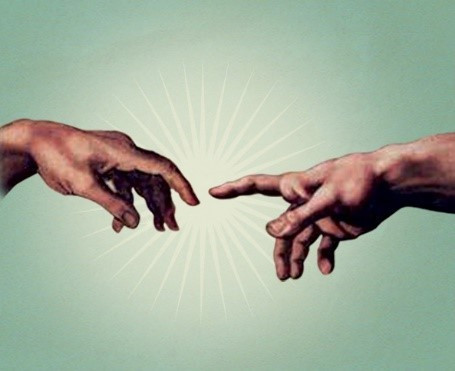 1. Our connection to the Creator, the spiritual connection which we call our soul, is our only internal source of joy. We know this when we are born, but forget about the connection as we grow up.
1. Our connection to the Creator, the spiritual connection which we call our soul, is our only internal source of joy. We know this when we are born, but forget about the connection as we grow up.
This is paragraph text. Double click here to edit and add your own text.
2. Our experience of the material world is a
superstition that we've developed because we've
learned to trust only our senses. We begin to believe
that the only reality is what we can see, hear, smell,
taste, or feel.
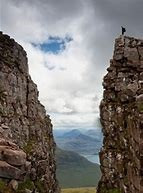
3. Our real essence is not material but spiritual, an infinite consciousness which we share with our Creator but which is eclipsed by our material self, causing a disconnection to our Source. The joy that we knew as infants, is replaced by attachments to the material world and what it can offer.
This is paragraph text. Double click here to edit and add your own text.
4. God, or pure consciousness, animates everything
in existence including the underlying field of
intelligence, which quantum physics has proven,
the whole universe is composed of. The science of
quantum mechanics has shed light on another level
of existence in the realm of extremely small
particles of which all matter
consists. In this realm all matter is just a field of large open spaces with tiny particles blinking on and off.
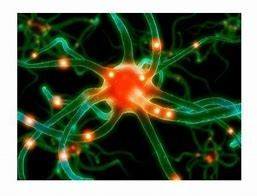
5. As we think within this field, we make molecules called neuropeptides that latch on to the receptor sites not just in our brain but all over our body. So every idea that we have, every thought we think, every emotion we feel, prompt these neuropeptides to react with our bodies in certain ways, some to our advantage, and some destructively.
6. The cells of our immune system also have these
receptors, and when needed, they can make what
the body needs in the right dose, at the right time,
for the right organ, with no side effects. In other
words, when something destructive occurs in our
bodies, these cells have what it takes to react in
order to bring our bodies back into equilibrium.
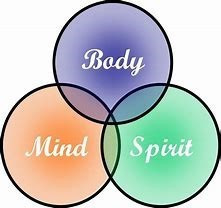 7. In fact, our whole body-mind is part of this profound field of intelligence which has the ability to do an incalculable number of things and correlate them with one another at the same time. Our cells have the natural intelligence to heal us.
7. In fact, our whole body-mind is part of this profound field of intelligence which has the ability to do an incalculable number of things and correlate them with one another at the same time. Our cells have the natural intelligence to heal us.
This is paragraph text. Double click here to edit and add your own text.
8. Our physical body is actually a distinct pattern of
intelligence within this field, and we experience our
physical realities according to our personal
interpretations of the different patterns that
constitute our immediate environment. It is these
interpretations that determine how our bodies will
react to our environment.
 9. Every interpretation we make in every moment has an effect on the energy patterns of our body. Every interpretation has a different vibratory frequency, and we can change our interpretations because we made them in the first place. At the quantum level, our bodies can decide what happens to us.
9. Every interpretation we make in every moment has an effect on the energy patterns of our body. Every interpretation has a different vibratory frequency, and we can change our interpretations because we made them in the first place. At the quantum level, our bodies can decide what happens to us.
10. In fact, if you could shift your perception right now,
take a quantum leap, into a different vibration, change
your interpretations, you could experience another
reality. The quantum level is a level of pure potential,
and by changing our interpretations, we can change
our realities.
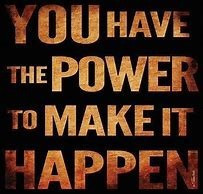 11. The world of spirit is the source of all power. There never was and there never will be any other source of power. The ability to change your interpretations to experience another reality is that power, the power to create, to transform, to love, to heal, to be free. To access this power, we need to “remember” the awareness of our connection with God. We are told His Holy Spirit is in us, that we are empowered by the Spirit to do great things in His name.
11. The world of spirit is the source of all power. There never was and there never will be any other source of power. The ability to change your interpretations to experience another reality is that power, the power to create, to transform, to love, to heal, to be free. To access this power, we need to “remember” the awareness of our connection with God. We are told His Holy Spirit is in us, that we are empowered by the Spirit to do great things in His name.
This is paragraph text. Double click here to edit and add your own text.
12. Power comes from God, the Source, the field of
pure consciousness, the underlying field of intelligence
to which we are connected through our individual
soul. To become aware again of this connection, we
must silence our mind in the practice of meditation.
The profound discipline of meditation takes much
practice, but you can start simply by silencing your
mind.
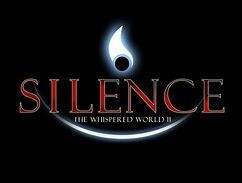
13. Spirit, the essential you, dwells in this silence. In this field, there is power to manifest your desires, there is freedom from fear and limitations, and there is that factor known as grace, which is the fulfillment of desire through synchronicity and the support of the laws of nature. Simple silence can be the beginning of the realization that you do have the power to change what happens to you.
This is paragraph text. Double click here to edit and add your own text.
14. When you are conceived, all you are, is a
double strand of DNA—a speck of information
that differentiates into a hundred trillion cells.
That process alone is a window into the natural
wonder that allows these cells to synchronize
their actions to produce a whole human being.
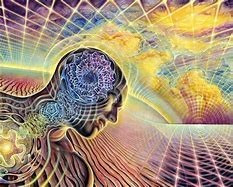 15. If each cell can do its own unique thing and correlate activity with every other cell without any confusion, it’s because the intelligence of the universe is flowing through that speck of DNA. So the best thing you can do is allow it to happen. That’s right, you simply allow what God intended to happen by not throwing obstacles in its way.
15. If each cell can do its own unique thing and correlate activity with every other cell without any confusion, it’s because the intelligence of the universe is flowing through that speck of DNA. So the best thing you can do is allow it to happen. That’s right, you simply allow what God intended to happen by not throwing obstacles in its way.
This is paragraph text. Double click here to edit and add your own text.
16. What we call stress is that which actually
constricts the flow of intelligence as it moves
from the unmanifest to the manifest. And most
often, we cause our own stress by our personal
interpretation of events, by the messages we tell
ourselves, and by the emotions that accompany
these messages. When the flow of intelligence is
blocked, we are blocked, and we orchestrate our own destruction.estruction.
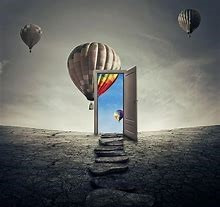
17. If we want something to become our life experience, then we put our attention to it. Anything, good or bad, that we pay attention to, manifests in the real world.
18. Desire is pure potential seeking
manifestation. But fulfillment of desire
requires that we first be aware of the
potential that resides in this flow, and then
simply having the notion in our awareness
spontaneously creates the reality. This is the
mechanics of creation. Knowing this, we can
choose to be aware of this infinite potential
where anything is possible, where at every
moment, our attention determines our reality.
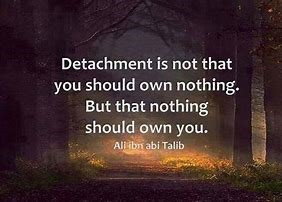 19. The more we detach and let go, the more spontaneously our desires are fulfilled. Our attention alone, sets the scene for fulfillment, but we must not be attached to the outcome. We must trust that the Divine Intelligence will bring it about.
19. The more we detach and let go, the more spontaneously our desires are fulfilled. Our attention alone, sets the scene for fulfillment, but we must not be attached to the outcome. We must trust that the Divine Intelligence will bring it about.
This is paragraph text. Double click here to edit and add your own text.
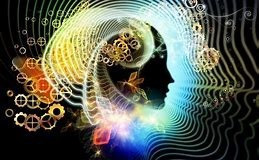 20. Power is the ability to manifest anything you want, including any reality that you want to experience. Only at the level of the soul can you participate in creating your own reality. Remember, the desire must emerge at the level of spirit for that is the source of power.
20. Power is the ability to manifest anything you want, including any reality that you want to experience. Only at the level of the soul can you participate in creating your own reality. Remember, the desire must emerge at the level of spirit for that is the source of power.
This is paragraph text. Double click here to edit and add your own text.
21. If something you’re experiencing in
life is causing you to be unhappy,
recognize that it’s your creation. So ask
yourself, what do I need to shift inside of
me so this doesn’t happen? Every
problem on earth can be solved at the
level of spirit. For example, a health
problem that you are experiencing may
be a consequence of something that you
put your attention to in the past, and therefore manifested in the real world. Every moment is an opportunity to change what is manifested in the real world by changing our interpretations of it.
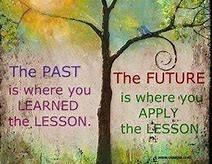 22. The world of the timeless is the world of pure consciousness, where every moment is free. This moment is free because all your troubles live in the past or in the future, which means they live in your imagination. Only the present moment counts in terms of interpretations that can alter reality. Awareness of this truth will help you realize the value of the present moment and how it impacts the future.r own text.
22. The world of the timeless is the world of pure consciousness, where every moment is free. This moment is free because all your troubles live in the past or in the future, which means they live in your imagination. Only the present moment counts in terms of interpretations that can alter reality. Awareness of this truth will help you realize the value of the present moment and how it impacts the future.r own text.
23. Keep your attention on this moment. This
moment is the only moment you have the
power to act. The early Christians called it
the “sacrament of the present moment,” the
opportunity to act at the spirit level, to make
a choice about how to interpret an event, to
desire what is good, and to change reality
by giving it up to the Divine Intelligence.
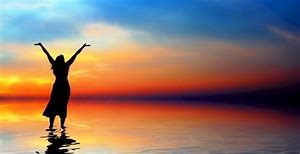 24. When you surrender to this moment, you act from the level of your soul. And when you act from the level of your soul, you take the appropriate action in this moment. The soul does not make a mistake, it simply follows the will of God, and prompts your body-mind to do what it takes to fulfill your desire.
24. When you surrender to this moment, you act from the level of your soul. And when you act from the level of your soul, you take the appropriate action in this moment. The soul does not make a mistake, it simply follows the will of God, and prompts your body-mind to do what it takes to fulfill your desire.
This is paragraph text. Double click here to edit and add your own text.
25. An intended outcome without
expectations or attachment,
orchestrates its own fulfillment.
This is because the power of the
whole universe is behind the
intention, this moment. The power
to fulfill your desire is not your
personal power but the power of
the Divine with whom you have
aligned yourself.
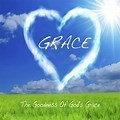
26. To live in grace is to experience that state of consciousness where things flow and your desires are easily fulfilled. Grace is the key to happiness.
27. Make a commitment to keep your body free of
toxins, both physical and emotional. Let go of all
constriction and tightness in your consciousness so
that your body can relax into the rhythms of the
universe. Again, this “entrainment” does not happen
on the physical level, but on the level of spirit which
you access through the silence of your mind.
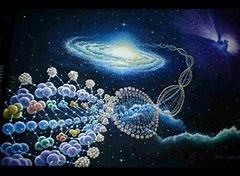
28. Science has shown that the cells of the body are holograms of the universe, which means that all the information that can possibly be known in the universe in encoded in the cellular structure of each cell. The cells of our body already know the mechanics of creation.
29. Your body has a computing ability that can
instantly take into account the infinitesimal details
that create every event in your life. It solves all
problems at a more expansive level of awareness
than the one in which the problem arose. Since your
problem arises in the physical level, it will take
awareness and desire on the spiritual level to change
the reality or solve the problem.
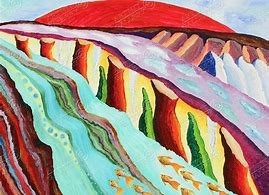
30. Let your impulses emerge from your heart, from the depths of your being, and the desire will orchestrate its own fulfillment. Decide today to surrender those desires to the power of the spirit.
This is paragraph text. Double click here to edit and add your own text.
Faith in the Connection
The Material World is paragraph text. Double click here to edit and add your own text.
Separation from the Source
Field of Intelligence
Neuropeptides
Cells of Our Immune System
Pattern of Intelligence
Energy Vibrations
MEDITATION
DNA's Double Helix.
The Intelligence of the Universe
ATTENTION
D
E
S
I
R
E
Personal Power
S
U
R
R
E
N
D
E
R
Our cells are holograms of the universe.
The Human Machine
Fulfillment of Desire
Pattern of Intelligence
How can you use your meditation to evolve, grow, and realize your full potential? That’s the key question you must answer when you begin to meditate, because like everything in life, meditation needs to be meaningful and have a worthy purpose. Every individual is unique, but I’d like to offer that meditation practice—or any aspect of your spiritual life—becomes meaningful by allowing you to meet and then become your true self.
Continue reading here: https://chopra.com/articles/how-to-find-your-true-self
It seems perverse that the easier life becomes, the worse our problems. Technology has created life-changing innovations like the Internet that are directly linked with terrorist attacks, giving like-minded fanatics instant global communication. Computers gave rise to social media, which has led to cruel bullying at school, fake news, conspiracy plots, and the anonymity to mount vicious personal attacks—all of these seem as endemic as hacking, another insoluble problem created by technology.
One could go on practically forever, and it wouldn’t be necessary to blame current technology either—the internal combustion engine is directly connected to climate change, and nuclear fission led to the horrors of atomic warfare. But my point isn’t to bash technology; we owe every advance in the modern world to it—except one.
Continue reading here: https://www.deepakchopra.com/blog/article/6169?